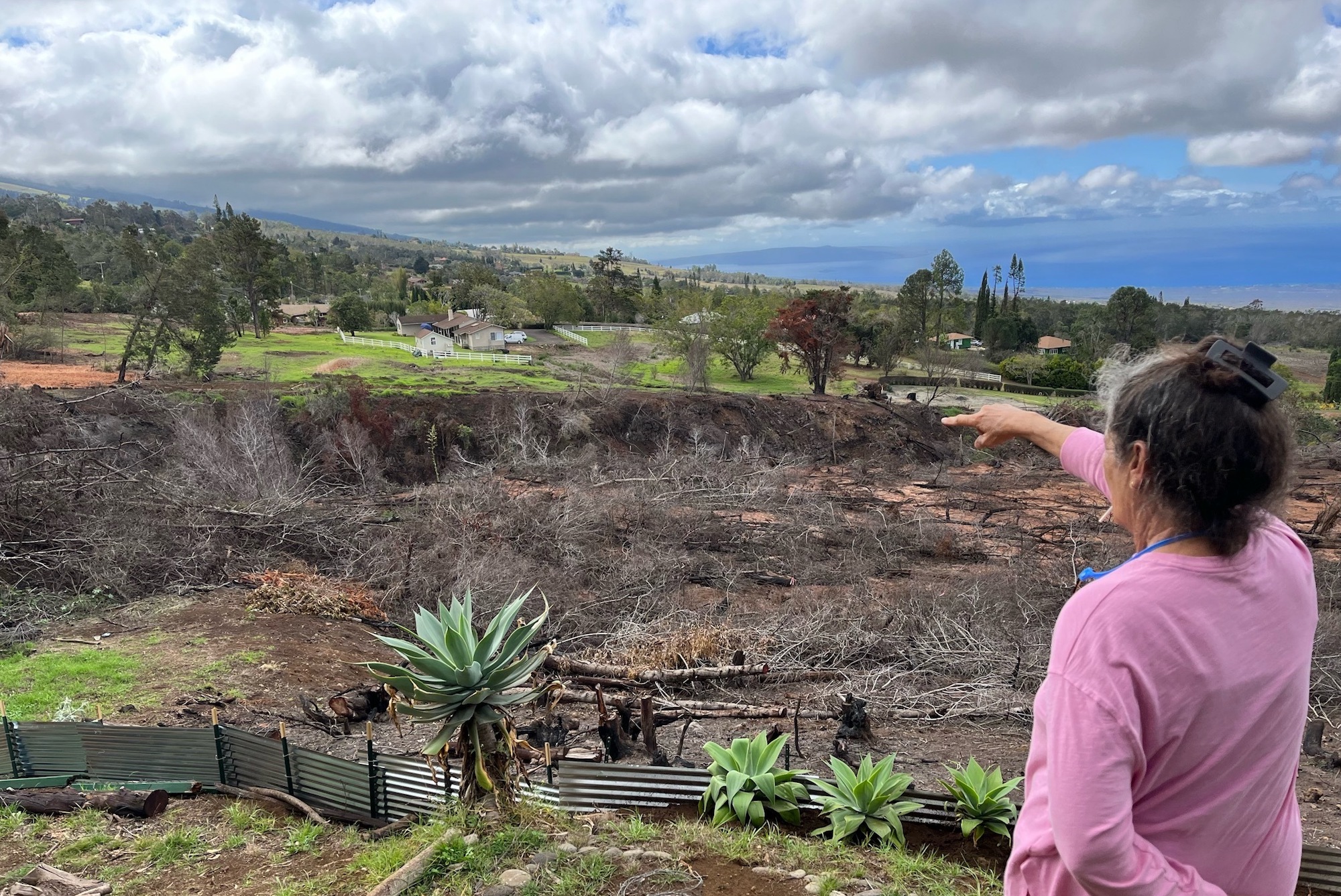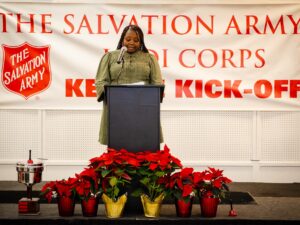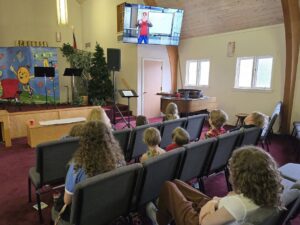“The Salvation Army has been really good to me,” said 68-year-old wildfire survivor Nancy Garnett as she looked out over the burned area a few feet from her property in Maui, Hawaii.
Garnett is one of over 8,500 people impacted by the historic fires that burned through Maui in August 2023 who have been helped by The Salvation Army. As the wildfires burned in Lahaina, she said a second fire fueled by high winds whipped toward her Kula neighborhood.
She recalled a wall of thick black smoke in her face, fire burning a few feet from her home. She knew she had to run for her life, so she grabbed her dogs, a cat and, with her broken foot in a cast, headed for her truck, barely making it out.
Miraculously, firefighters saved her home as neighbors’ homes burned to the ground. Still, her home, like many others, has many needed repairs in the aftermath of the fires, like a new roof and repairs to her fenced yard to keep her animals safe.
“I think we are still in survival mode,” she said. “We do not know what is next…If our homes can be restored—but we don’t want to leave.”
From the fires until the end of 2023, The Salvation Army has coordinated over 800,000 meals, prepared over 100,000 meals, provided more than 5,000 instances of emotional and spiritual care and distributed more than $900,000 worth of gift cards, among other efforts. And the response remains ongoing.
“They brought me gift cards for groceries, gas, even Walmart. That has helped me so much already,” Garnett said. “And then someone came back to visit me to check up on me. It means so much to me, especially as a kūpuna.”
Kūpuna means honored elder, grandparent or ancestor. In Hawaiian culture, kūpuna are highly respected as keepers of ancestral knowledge, valued for their life experience and wisdom. They are practitioners of aloha (love), mālama (caring) and spirituality.
They’re also a group that is feeling the prolonged impact of the fires. Garnett said for kūpuna like her who have a home to return to that needs repairs, it can be especially challenging due to the amount of physical labor involved, among other elements. Additionally, many kūpuna were displaced after all six residential structures housing seniors in Lahaina were destroyed by the fires.
Many other kūpuna lost their homes in Lahaina, like Lorraine (Lovey) Yoshimoto, 83. She said she grabbed her car keys and drove away from her home of 54 years as a boy sprayed a fire extinguisher under the cars to keep them from exploding.
After making it to a shopping center, she said she spent three days camping in her car while her grandson searched for her. She is one of approximately 500 people over 65 who are living in hotels with no reassurance of how long they will be able to stay. Others are with friends and family.
“We miss and we need cultural connections,” she said. “We need to be together, to laugh.”
Currently many kūpuna feel alone, traumatized and worried about how and if they will ever get back to their ‘aina (land), said Stephen Van Bueren, Maui Recovery Project Coordinator.
“Now, more than any other time before, it is our turn…It is our responsibility to love, support and take care of kūpuna. To make sure that they are seen. To make sure that they are heard. To make sure that they are honored and not forgotten,” Van Bueren said. “As long as The Salvation Army is needed, its response will continue.”
“I am forever grateful to The Salvation Army for giving me those gift cards and especially for coming back to check up on me,” said Garnett. “That is the true spirit of aloha.”
With reporting by Suzi Woodruff Lacey
Do Good:
- See how The Salvation Army fights disaster.
- Are you best suited to Do Good in disaster relief? Mental health? Social justice? Take our What’s Your Cause quiz and discover where you can make the biggest impact today.
- What are the simple, soul-filling ways you can upgrade your time, even if it’s just a few minutes? Get the Joy-Filled Toolkit and make a plan for joy with a printable 12-week joy planner and mini-workshop podcast to help you make the most of each moment.












